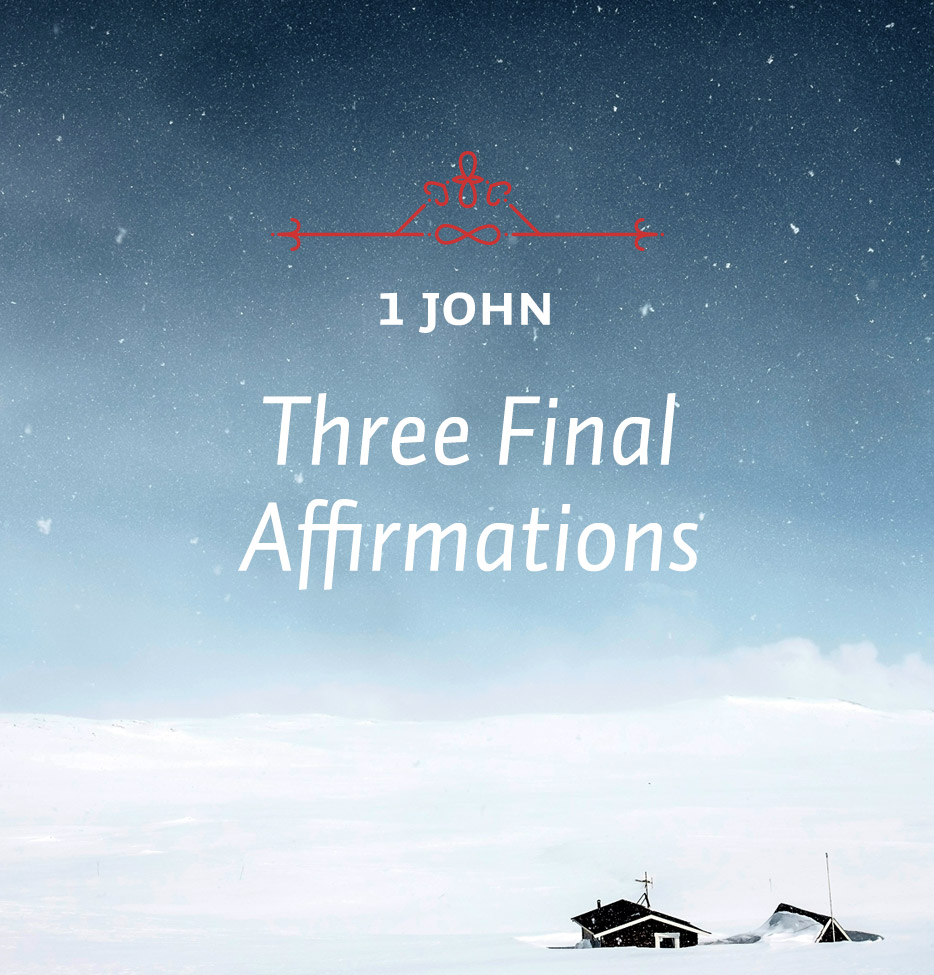The second of John’s affirmations is that “we are of God,” joining himself to his readers in this certainty. But where does the certainty come from? In the first instance the certainty that the one born of God does not sin comes from the ability of Jesus (or God) to keep the Christian. In this case the certainty that “we are of God” comes from the fact that the tests of righteousness, love, and sound doctrine have been applied and the results discovered to be positive.
This has been John’s overall purpose in writing, of course. For while he wishes to guard against presumption, he nevertheless does not wish to discourage those to whom he is writing. He wants them to know that they truly are God’s children. Here his switch from the third person singular in the preceding verse (“whosoever is born of God”) to the first person plural (“we”) is most encouraging. For he wishes to show that in this point even the most normal Christian can have an assurance that differs neither in nature nor in degree from that assurance possessed by the apostles. Indeed, we no less than they can know that we are truly God’s children.
This same truth and its corresponding assurance does not extend to everyone, however. True, the Christian is born of God and is kept by the power of God. But the one who is not a Christian is not born of God, nor is he kept by Him. On the contrary he is in great danger; for, far from being free of Satan’s power, he actually lies obliviously in Satan’s arms. It is important to note that John does not say that the world is “of” Satan in a way parallel to his saying that we are “of God,” for that is not true. Some persons are the devil’s children, according to Jesus’ teaching as recorded in John 8:44. But those to whom Jesus referred were an exceptional case, having become children of Satan by a deliberate commitment to him similar to (but in opposition of) that commitment through which a Christian becomes a child of God. Most persons are rather what we might call free agents. This does not mean that they are well off, however, for in their imagined freedom they choose to ignore their danger and thereby fall into Satan’s power. Nothing but the voice of the risen Christ can wake them and call them to God’s service.
Once again John leaves no room for a third alternative, for either one is of God or in the power of the evil one. From our perspective the issues are often blurred, and we find it hard to tell whether one is of God or not. For us good and evil, love and hate, truth and falsehood seem mixed. But that is no comfort; nor is it an accurate portrait of the true state of things. In God’s sight they are only those who are His true children and those who are of the world, whatever conception of themselves may be possessed by the latter. Consequently, the Christian should know that he is truly of God. The one who does not have this certainty should by the grace of God awake out of his sleep, turn from known sin, and embrace the Lord Jesus Christ as both God and Savior.






